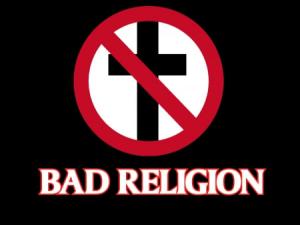Wiping Away Christianity
One segment of the contemporary right-wing movement is represented by the “Million Women March” on Washington D.C. (October 12). Tens of thousands of American women, mostly mothers, marched on Washington to express their dissatisfaction with American culture’s moral decline and the “elites’” attempt to wipe Christianity away from politics, education and popular culture in general.
What’s that all about?
The majority of today’s American conservative movement believe Christianity is a fundamental part of American culture. Many of them believe, rightly or wrongly, that there is a tacit conspiracy among the powers that be to wipe it away from schools even to the point of wiping its influence from American history textbooks.
They are not going to agree with the increasing secularization and pluralism of American culture which they see as not including Christianity but excluding it.
Let’s look at the evidence.
When I was growing up in the 1950s and 1960s my school days began with Bible reading and prayer by my home room teacher, an African-American minister. Nobody batted an eyelash at that. Then came the famous or infamous SCOTUS decision that quashed such acknowledgement of Christianity in public schools.
Some civil rights organizations interpreted “separation of church and state” as meaning that Christianity, especially, could not be taught in public schools and that bled into many businesses.
For several years I taught a course on the “Christian worldview” to adults in an adult education, “degree completion” program at a liberal arts college. Many of them reported being told my supervisors that they could not even have a Bible on their desk or in their workplace or read it during their breaks.
Television has by-and-large wiped Christianity away. The TV series “The Middle” began with the family being religious but soon dropped that entirely. Any presence or influence of Christianity or the Bible has become virtually invisible on American TV.
When one of my daughters was in middle school she brought home her world geography textbook. I read it. Christianity was all but missing from it where other religions and their influences on many cultures were highlighted with lengthy discussions of them. The “pilgrims” were not mentioned as religious at all. Martin Luther King, Jr.’s Christian faith and his identity as a Christian minister was not mentioned in the lengthy passage about him.
It was an obvious attempt by the publisher to wipe Christianity away from the subject. I wrote a letter to the publisher that was never answered and gave the principle a copy of it. She treated me like I was a book-banning fundamentalist.
When libraries and bookstores feature “Banned Books” one never sees Christian books or books with Christian themes mentioned or displayed, not even the Bible, even though it has been banned by many schools. When I was a teenager attending a public school I was told not to bring my Bible because it caused offense and disturbance. I never experienced that although some fellow students did ask me why.
There can be no doubt that there exists a tacit conspiracy to exclude Christianity from the American “public square.” Even traditional morality is evaporating. American is in moral decline.
The majority of Americans still consider themselves Christians in some sense. But education, governments, and popular culture have quickly, increasingly banned it from having any “voice” even in TV shows where you would expect there to be a church (e.g., series Everwood). Almost no TV characters have any religion and if they do, it’s Hindu or Jewish and if Christianity is featured at all it is ridiculed (Big Bang Theory).
This is what the Million Women March was about. And I believe it is what is fueling the passion of many MAGA Americans. They wrongly think Donald Trump is going to bring Christianity back into the American public square. He might, but only to keep them supporting him. And what influence he attempts to give it will be shallow at best and probably not true Christianity which is all about compassion for the weak, the vulnerable, the helpless, the needy.
*Note: If you choose to comment, make sure your comment is relatively brief (no more than 100 words), on topic, addressed to me, civil and respectful (not hostile or argumentative) and devoid of pictures or links.*














